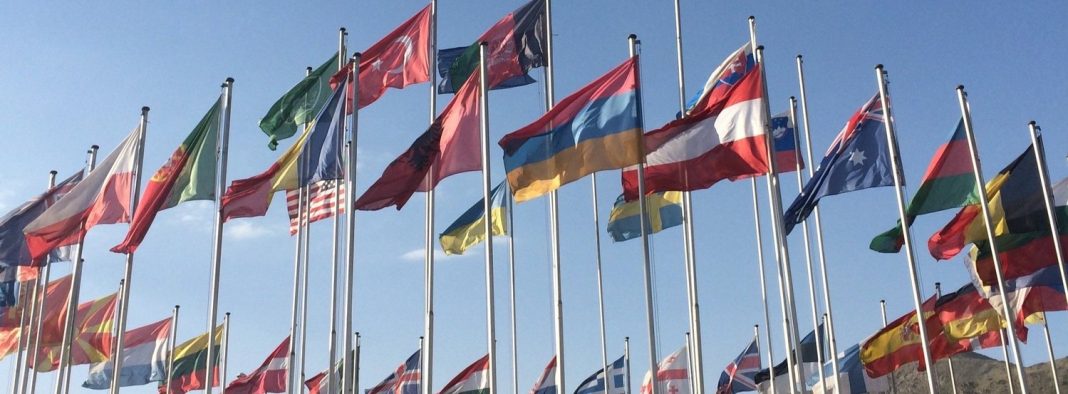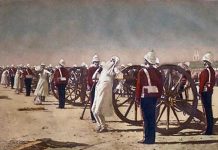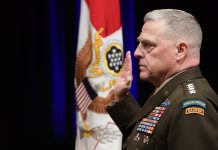Notes:
[1] Ole R. Holsti, P. Terrence Hopmann, John D. Sullivan, Unity and Disintegration in International Alliances (New York, NY: Wiley, 1973), 22.
[2] “Foreign Ministers address lessons learned from NATO’s engagement in Afghanistan”, NATO, December 1 2021, https://www.nato.int/cps/en/natohq/news_189512.htm?selectedLocale=en.
[3] Samuel P. Huntington, The Soldier and the State: The Theory and Politics of Civil–Military Relations (Cambridge, MA: Belknap Press, 1957), 357; Morris Janowitz, The Professional Soldier: A Social and Political Portrait (Glencoe, IL: Free Press, 1960), 314–17; Peter D. Feaver, Armed Servants: Agency, Oversight, and Civil-Military Relations (Cambridge, MA: Harvard University Press, 2005); Risa Brooks, Reconsidering American Civil-Military Relations: The Military, Society, Politics, and Modern War, ed. Risa Brooks and and Daniel Maurer (Oxford: Oxford University Press, 2020).
[4] Douglas L. Bland, The Military Committee of the North Atlantic Alliance: A Study of Structure and Strategy (New York: Praeger, 1990).
[5] Ryan C. Hendrickson, Diplomacy and War at NATO: The Secretary General and Military Action After the Cold War (St. Louis, MO: University of Missouri, 2006).
[6] Timothy Andrews Sayle, Enduring Alliance: A History of NATO and the Postwar Global Order (Ithaca, NY: Cornell University Press, 2019).
[7] Matthew Connelly, The Declassification Engine: What History Reveals about America’s Top Secrets (New York: Pantheon Books, 2023), 347–75.
[8] Sten Rynning and Paal Sigurd Hilde, “Operationally Agile but Strategically Lacking: NATO’s Bruising Years in Afghanistan,” LSE Public Policy Review, May 2, 2022, 1–11; Sten Rynning, “Still Learning? NATO’s Afghan Lessons beyond the Ukraine Crisis,” in NATO’s Return to Europe: Engaging Ukraine, Russia, and Beyond, Edited by Rebecca R. Moore and Damon Coletta (Washington, D.C.: Georgetown University Press, 2017).
[9] Diego Ruiz Palmer, “NATO Review – NATO’s Engagement in Afghanistan, 2003-2021: A Planner’s Perspective,” NATO Review, June 20, 2023, https://www.nato.int/docu/review/articles/2023/06/20/nato-s-engagement-in-afghanistan-2003-2021-a-planners-perspective/index.html.
[10] Theo Farrell, Unwinnable: Britain’s War in Afghanistan 2001-2014 (London: Vintage, 2017), 284–85.
[11] John Manza, “I Wrote NATO’s Lessons from Afghanistan. Now I Wonder: What Have We Learned?,” Atlantic Council (blog), August 11, 2022, https://www.atlanticcouncil.org/blogs/new-atlanticist/i-wrote-natos-lessons-from-afghanistan-now-i-wonder-what-have-we-learned/.
[12] “Missing in Action: UK Leadership and the Withdrawal from Afghanistan, First Report of Session 2022–23” (London: UK House of Commons Foreign Affairs Committee, May 17, 2022), https://committees.parliament.uk/publications/22344/documents/165210/default/; “Between Wish and Reality: Evaluation of the Dutch Contribution to Resolute Support” (The Hague, Netherlands: Ministry of Foreign Affairs Policy and Operations Evaluation Department, March 2023), https://english.iob-evaluatie.nl/publications/reports/2023/05/19/dutch-contribution-resolute-support; Krisanne Campos, “Lessons Learned Record of Interview – Unnamed NATO Official” (Special Inspector General for Afghanistan Reconstruction, February 23, 2015), background_ll_01_xx_brussels_02232015, The Washington Post’s “Afghanistan Papers,” https://www.washingtonpost.com/graphics/2019/investigations/afghanistan-papers/documents-database/.
[13] Farrell, Unwinnable: Britain’s War in Afghanistan 2001-2014, 374.










